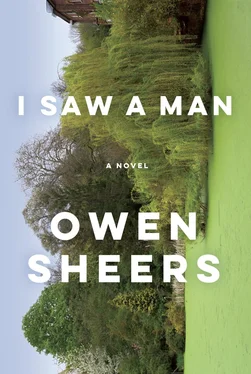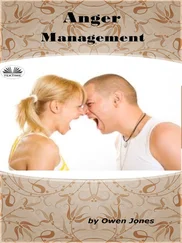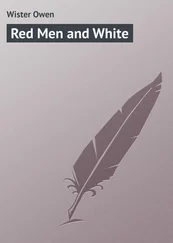“So what you going to do?” Josh said, as he’d approached his house next door.
Michael slid his key into the lock. “About the letter?”
“Yeah,” Josh said. “You should inform the inquiry.”
Michael looked down at his feet.
“You can’t let him get away with this.”
Michael looked back up at him, realising how in some ways his neighbour was a child in this world. “He’s already got away with it, Josh. They all have.”
Josh nodded in appeasement. “Sure, I know,” he said, giving Michael one of his older-brother looks. “But this is specific. You can do something about this.”
Michael said nothing. He shouldn’t have shown Josh the letter.
“So you’re going to, right?” Josh said.
“Maybe,” Michael replied. “I don’t know.”
“Well, just let me know if I can help.” Josh looked down at his watch. “Shit,” he said, opening his front door. “I’ve gotta run. See you later.”
“Yeah,” Michael replied, stepping into his own communal hallway. “See you later.”
―
But Michael did know what he was going to do. He’d already decided on the Heath, as they were running through the bare woods beyond Kenwood. He would write back. He would write to Daniel and ask him for more. He would ask him to live that day again, to tell him what it had been like. What had he dreamt? How had he woken? What was the weather? What did he eat and drink? And what, afterwards, did he do in those few hours when he still didn’t know that he’d killed her, and Michael didn’t yet know she was dead? How, in that caesura of distance and time zones, as Michael had worked in the garden, his grief coming for him from the other side of the world, had Daniel occupied himself? What had he done and what had he thought? As 8,000 miles away a mud-walled compound had slipped into shadow and a thinning plume of smoke had blown through the leaves of a fig tree, a scattering of chickens stabbing at the earth at its roots.
MICHAEL WAS COMING back out onto the landing when he sensed her again — a change in the air’s texture, a fleeting intuition. He stopped and turned towards the door opposite the stairs. A seam of light ran the length of its frame, and he realised it wasn’t fully closed. A scooter’s engine, high and insistent, rose and fell on the street outside. Michael listened to the house in its wake, but again there was nothing. Just the sound of his own breathing and this penumbra of Caroline, refusing to let him go.
He pushed the door open with his foot. It swung easily, revealing a bathroom. A broad window, its blind half drawn, looked out over the pear tree in the garden and the crowns of the trees around the ponds. A cushioned seat inlaid in its sill was piled with women’s magazines, their pages warped by moist air. In front of him was a toilet and a wooden cabinet above its cistern. To his right, a sink with a collection of toothbrushes in a mug and a rolled tube of toothpaste beside it. Above the sink a mirror reflected the window’s light, while beyond it, along the far wall, was a deep enamel bath, a showerhead resting in its cradle, its steel hose curling into the tub. In a corner of the bath were Lucy’s water toys. A purple floating octopus, a My Little Pony sponge, and, beached on its side, a plastic goldfish with which, just a few days earlier, she’d squirted Michael from her paddling pool.
―
Ever since that first party, Lucy and Rachel had often been the conduit to Michael’s spending time with their parents. When Sam took them for walks on the Heath, or shopping in Hampstead, she frequently called Michael to ask if he’d like to join them. Similarly, when Josh had the girls for the day he’d begun to ask Michael along too, to fly a kite on Parliament Hill or visit a museum in the centre of town. Like Sam, he’d noticed how the girls tended to be better behaved with Michael present, their attentions to each other diffused to accommodate his as well.
The girls accepted Michael into their domestic orbit quickly. Rachel, at seven years old, was beginning to aspire to a maturity beyond her reach. For her, having Michael around meant an opportunity to experiment with projections of her older self, to practice expressions of speech and face, postures and poses, with an adult who was neither her family nor her teacher. A serious girl, Rachel had a tendency to want to take Michael aside to talk with him. Approaching him with a frown, she’d lead him silently into the conservatory or pull a stool up close beside him so he had to turn and talk to her and her alone. When she did this, Rachel often conducted herself as if her affairs — her drawings, her books, her tales of school — were of an importance far beyond the trivialities of family life or her peers. There was no pretence, and Michael never doubted her sincerity. She would, he thought, most likely maintain a similar course as a teenager, until hormones or a boy proved to her otherwise. But until that happened Michael could imagine her as an earnest academic or a campaigner, a powerfully strident woman, quietly confident that the world would, eventually, bend to her way.
In contrast to her sister’s desire to escape the limits of her age, Lucy revelled in the licence of hers. At four years old, her toddler’s solipsism had recently been grafted with a nascent awareness of the privileges of being a child. To her, Michael was someone for whom she could perform, and with whom she pushed the limits of what she could get away with, without fear of parental retribution. When they walked on the Heath she often insisted on being carried on his shoulders, his height thrilling her with an adult’s perspective and a safe breed of danger. Samantha would tell her to leave Michael alone, and Rachel looked on with an expression of wise disapproval. But Lucy remained impervious to either her mother’s requests or Rachel’s judgement. She inevitably got her way, and when she did she rode Michael’s shoulders with unbridled glee, one hand clasped around his forehead, the other reaching for the lower branches of the trees.
For Michael, it was impossible to spend time with the girls without a low, settling sadness gathering below his throat. In time he barely noticed it, associating its resonance with the climate of their company. But there were other occasions, when Caroline was present in his thoughts, or an object or song brought a memory to the surface, when it became more discernible. At these times Michael was reminded of the conversations they’d had about having a child of their own. Michael had felt more ready than Caroline. For her part, she’d said, although she’d wanted a child intellectually, instinctively the thought scared her. Not the child itself, but her possible failure as a mother. Her life had been independent, self-centred. Which is why she’d asked him for more time. To allow her to grow that part of herself that might accommodate an infant, to learn, again, to see her hours and minutes as no longer hers, but theirs as well. Had Caroline returned from Pakistan, they would have begun trying that summer. This is what they’d hoped. A spring baby to come into the world with the early blossom, when the trees across the valley were coming into leaf.
―
In the other corner of the bath, opposite Lucy’s toys, a collection of bottles, three deep, vied for space. Many of them were hotel samples — shampoos, conditioners, bath gels — collected, Michael guessed, from Josh’s business travels, family holidays, or Samantha’s spa weekends with Martha. As he stood in the doorway, it was these bottles that drew Michael’s attention. His unconscious must have detected the scent long before his sensory mind, for it was only now, as he walked towards the bath and this crowd of sample-sized containers, that Michael could smell it for sure. A fragrance of amber, a smell and a memory in one. A subtle genie held in one of the bottles of bath oil, the same as Caroline had used that night she’d waited for him in Hammersmith. The night he’d found her up there, her knees to her chest, the undulations of her spine melting into the nape of her neck. She must have brought it with her to his flat that night. A hotel bottle, packed into her bag in any number of the countries in which she’d worked.
Читать дальше











